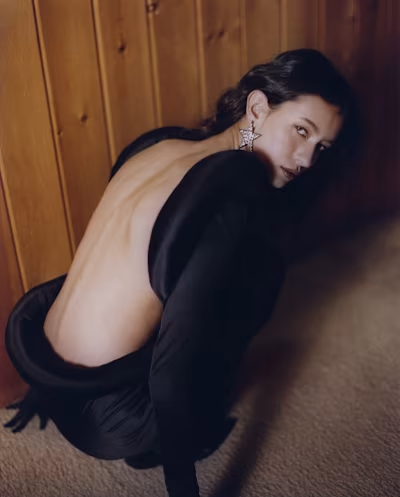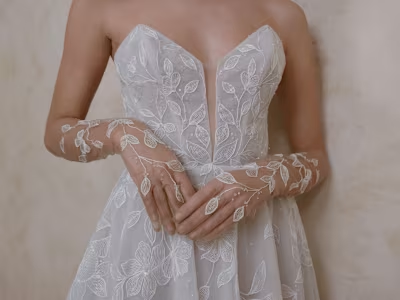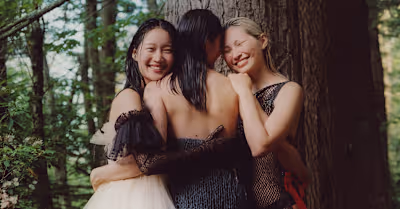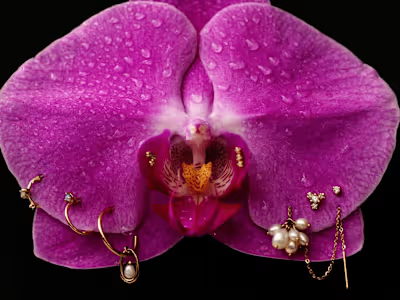Desi Lydic - ContentMode
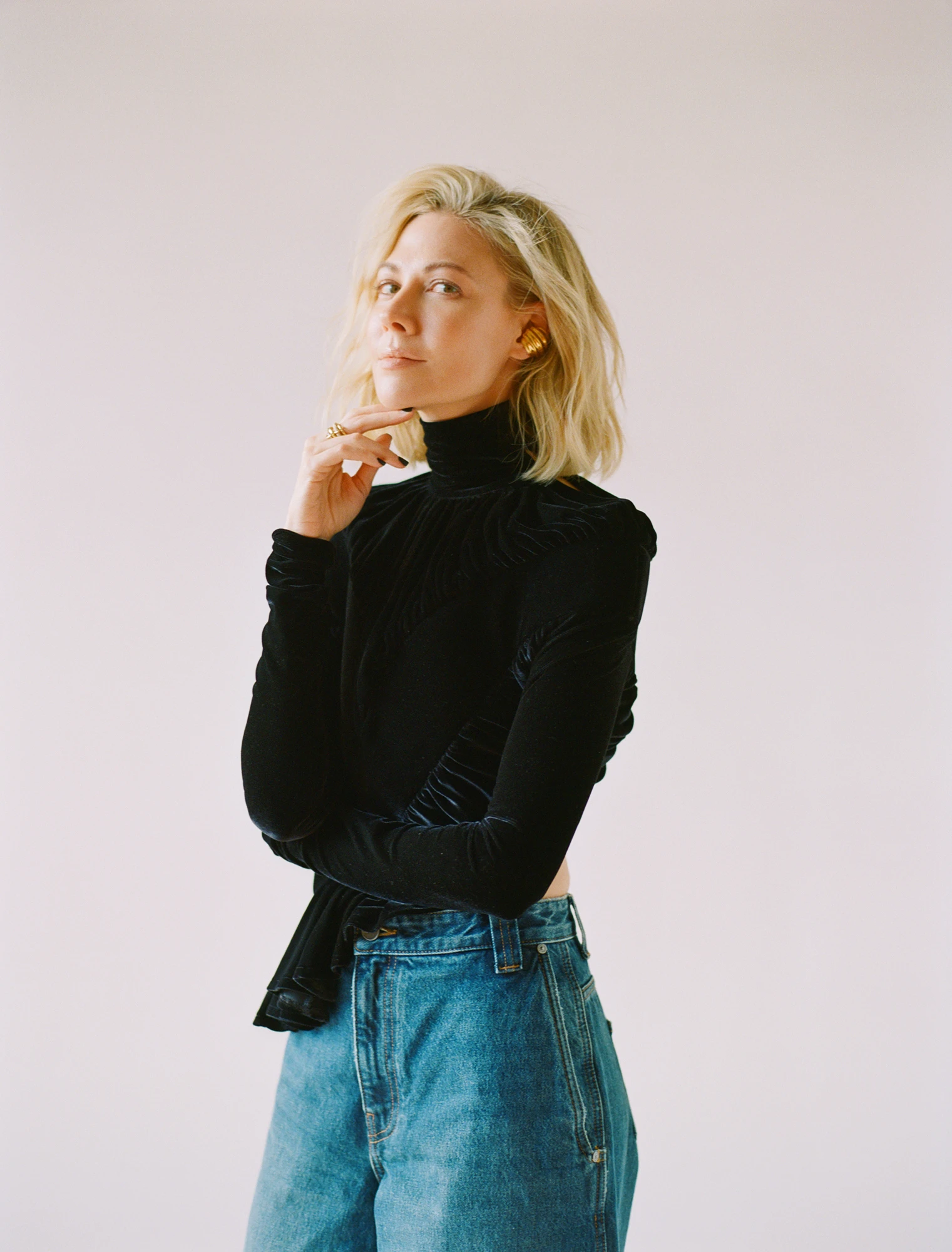
Interview Laasya Gadiyaram
As American politics has changed, Desi Lydic has stayed the same: funny. Working as a correspondent and guest host on the Daily Show, Lydic has made Americans across the country laugh about political problems while also getting them to critically engage with the world around them. Lydic specifically comments on media in her short-form series, Foxsplains, for which she received an Emmy Nomination for Outstanding Actress in a Short Form Comedy or Drama Series. We talk about the eras of the Daily Show, political polarity, and what it means to be funny!
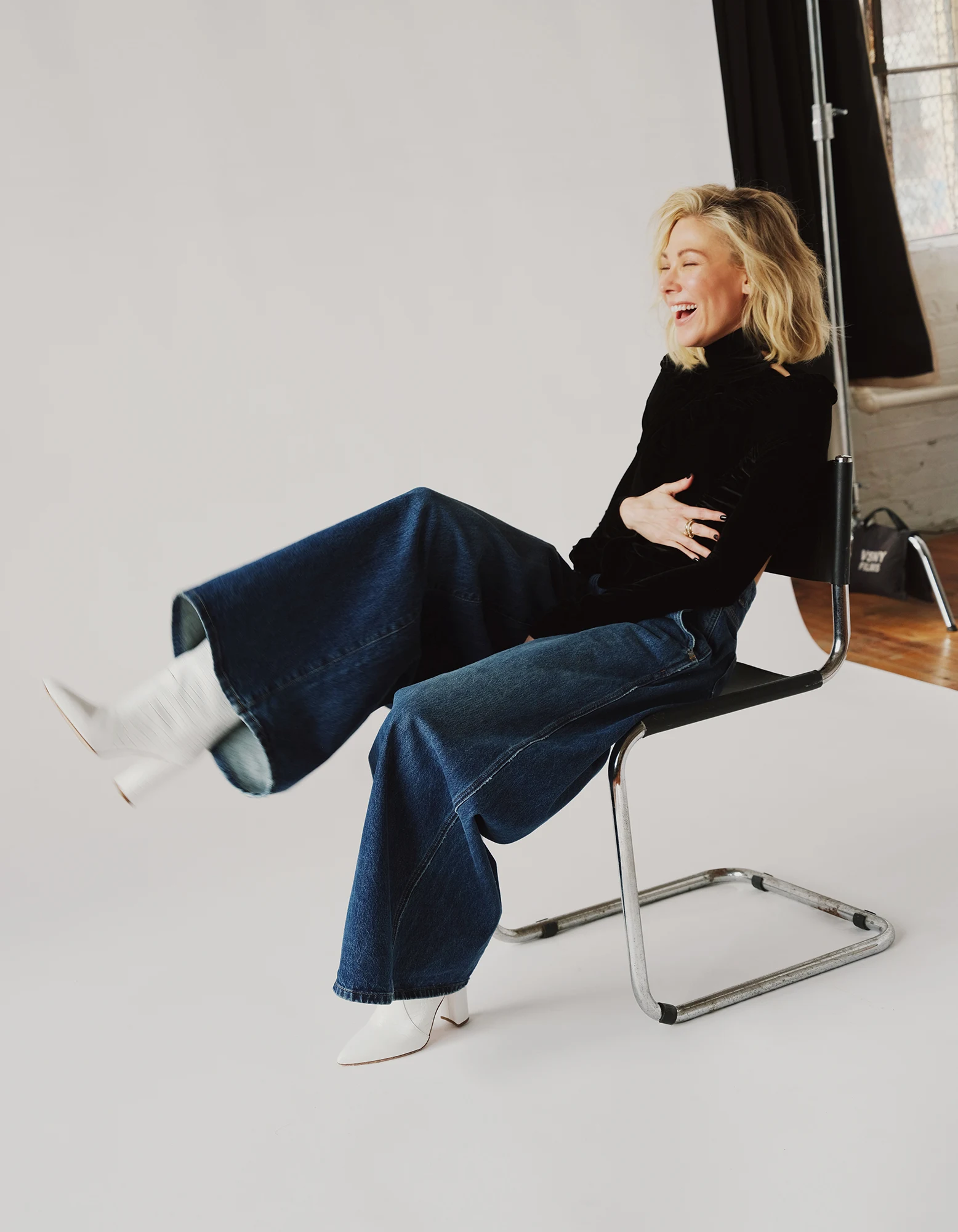
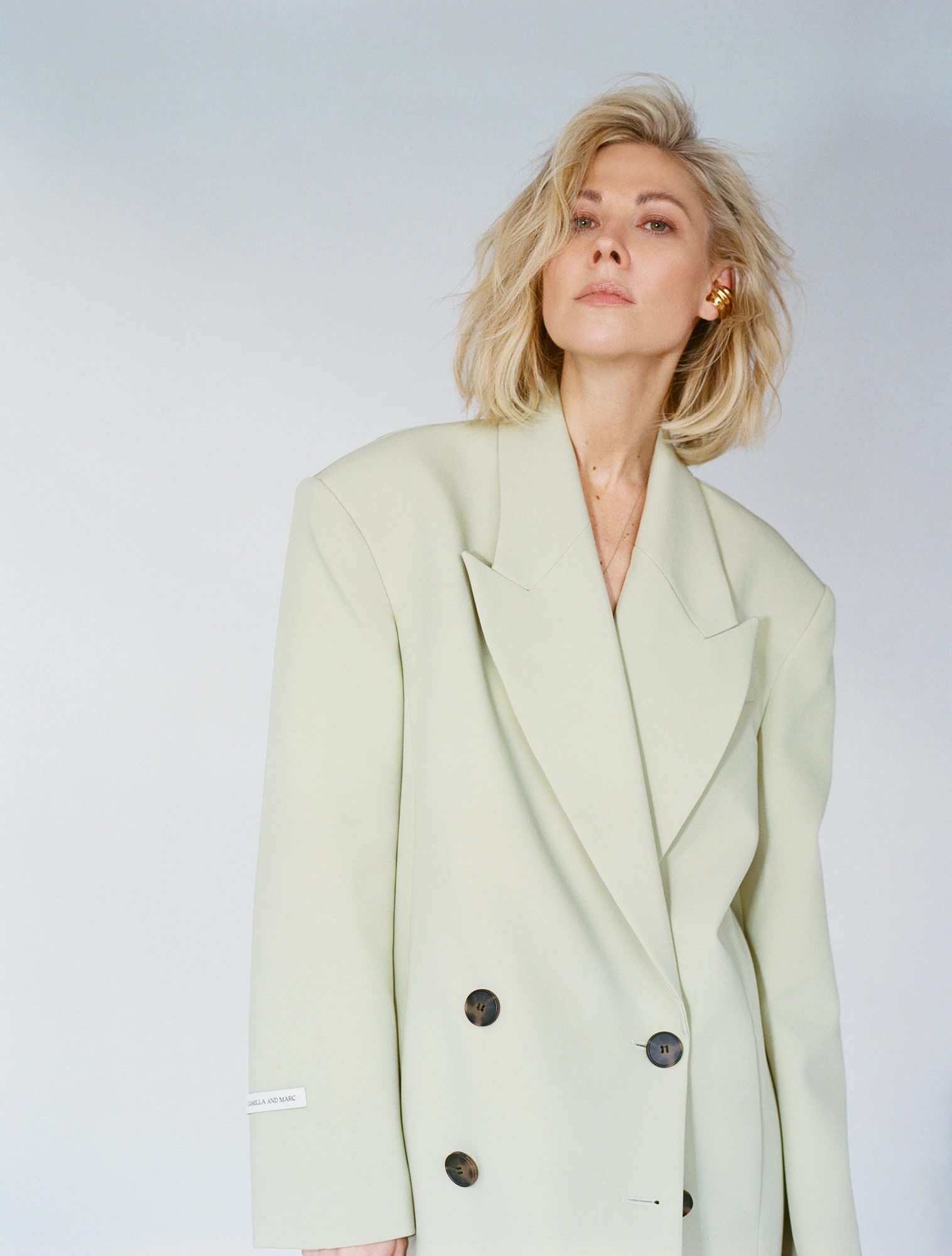
My mom and I are the biggest Daily Show fans! How has the show reacted to different political changes? Has your approach ever differed depending on the political climate?
Oh that’s so nice to hear, thank you for watching! Absolutely. I started 8 years ago when Trevor took over the show and I got to be part of this very cool transition where he was able to maintain the sensibility and the ethos of what Jon built, but evolve the show in new and exciting ways. Experimenting in Sketch comedy, tweaking the aesthetic of the field segments, expanding our digital footprint to engage with our viewers in more immediate ways.
Then the Trump presidency really changed the way we could get away with being satirical, we had to navigate being a bit more nuanced in our approach because it became challenging to parody a parody. When Covid happened that certainly changed the way we could make our show, suddenly working and filming from home without being in the same room together, all while navigating very scary and serious threats. Which honestly felt so cathartic for us to be able to make those shows, have those meaningful conversations. Trevor navigated that so beautifully.
And now, since Trevor’s departure we’ve seen the show really shine as an institution with all of these incredibly talented comedians coming through to give their unique perspective on the day’s news. It’s been quite the ride, and thankfully through every evolution it continues to be a place people feel like they can come to get the straight scoop on what’s happening in the world and find the humor in all the chaos.
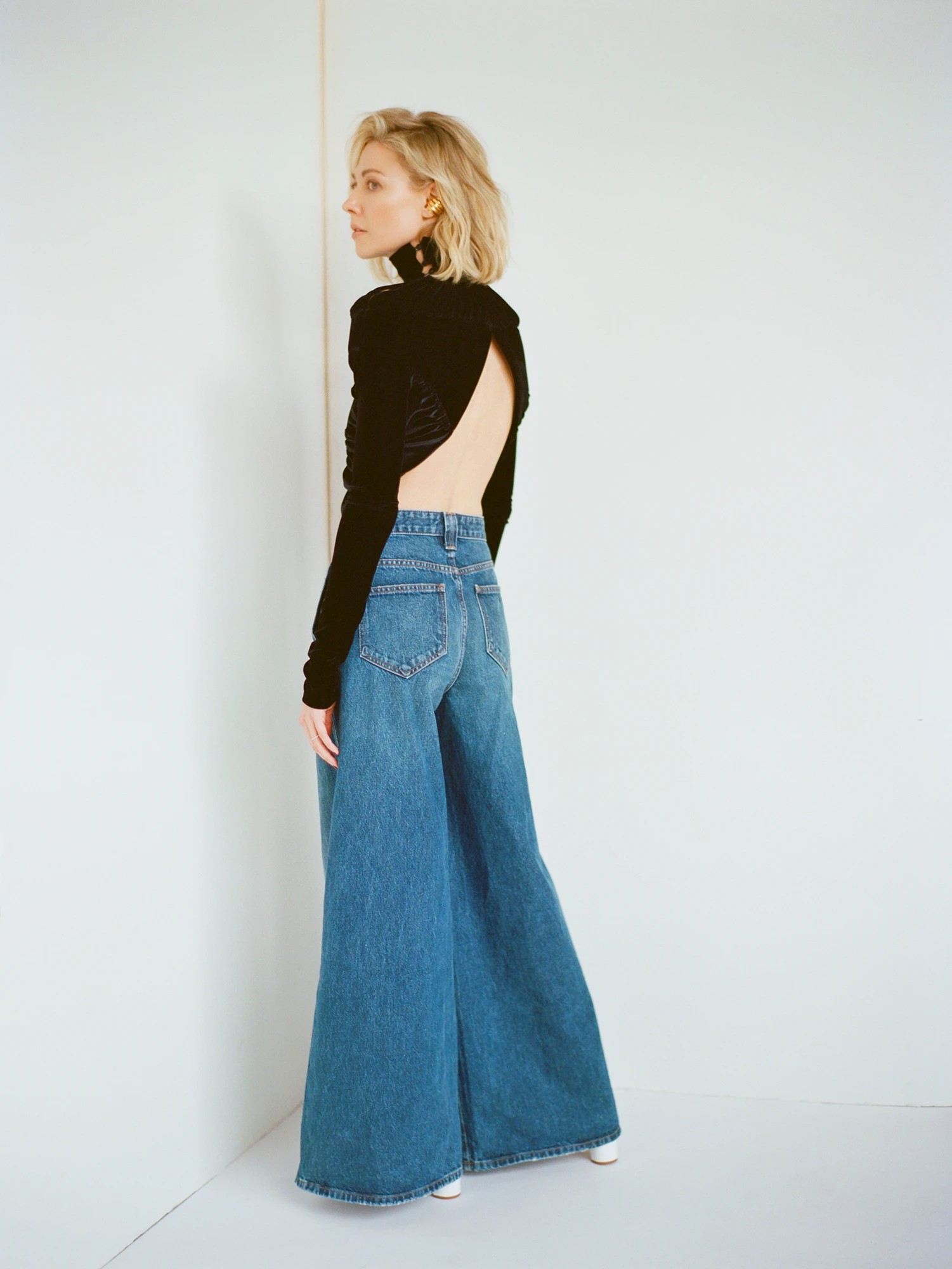
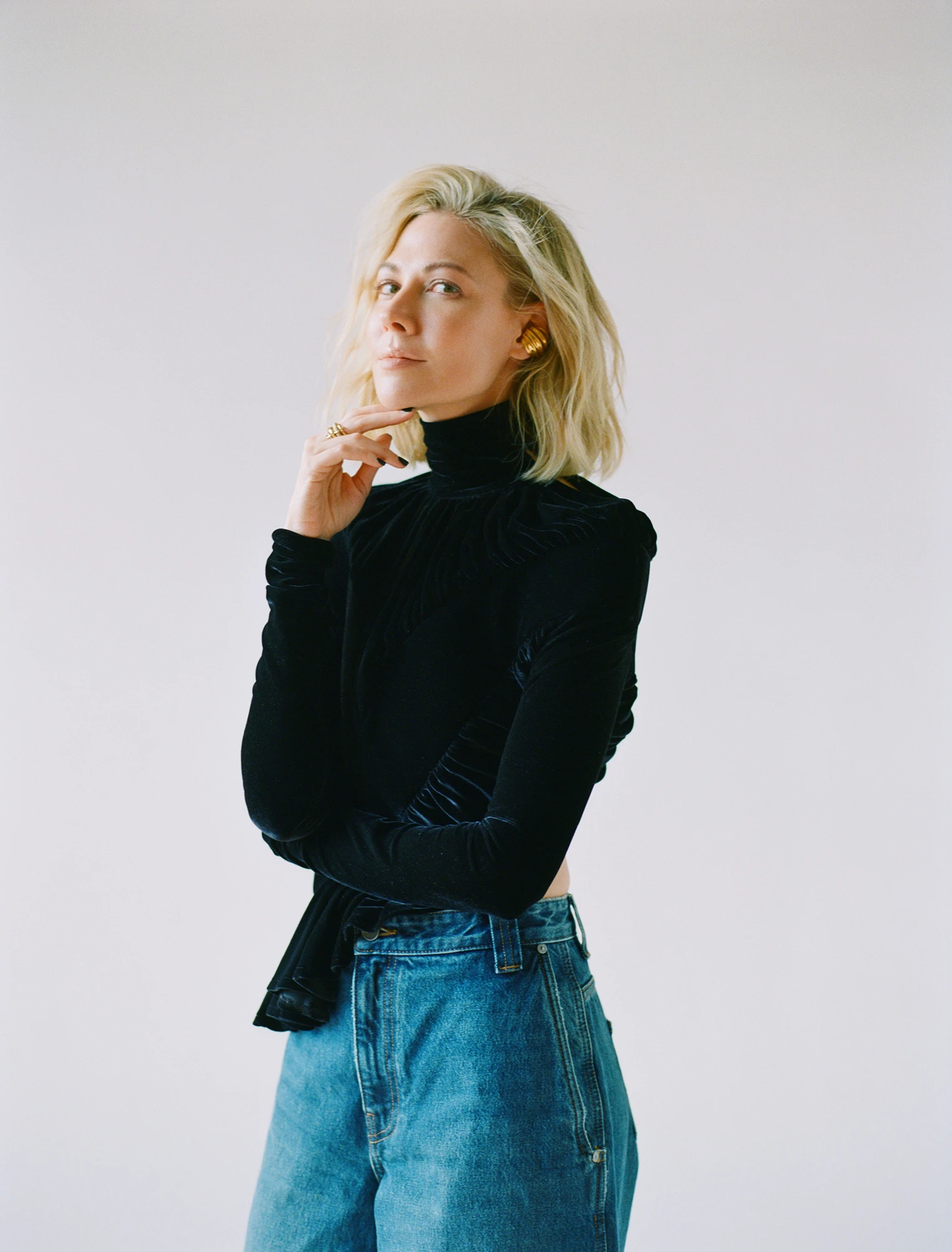
Do you see political commentary and media as another form of checks and balances?
I suppose it is. In terms of our show, I think our first priority is to entertain, to make people laugh for a brief moment about all of the wild things happening in the news. Part of how we mine for comedy is to call out hypocrisy when we see it, and call BS on people or institutions who are abusing their power. That’s certainly built into the backbone of our show, but we should really be a secondary news source for people. We don’t take ourselves too seriously. At the end of the day we’re on Comedy Central. Still. I think?
How do you think satire and commentary fit into the broader context of television and media? Do you think there should be more of it! Less of It!
I do think laughter can sometimes act as a great unifier and allow for the guard to drop a bit, perhaps even open the door to have more nuanced conversations. I’ve experienced it in my own family. I’m pretty progressive politically but grew up in a more conservative household in KY. We’ve always found joy and connection through humor, even if we deeply disagree. In times like this where we as a country feel so polarized, any small way in- whether it’s through humor or through exercising empathy, feels like a worthy attempt. That being said, I don’t think anyone watching our show will suddenly do a 180 on their political views, people tend to find content that speaks to their own beliefs and opinions, but every now and again maybe it starts a conversation around the dinner table.
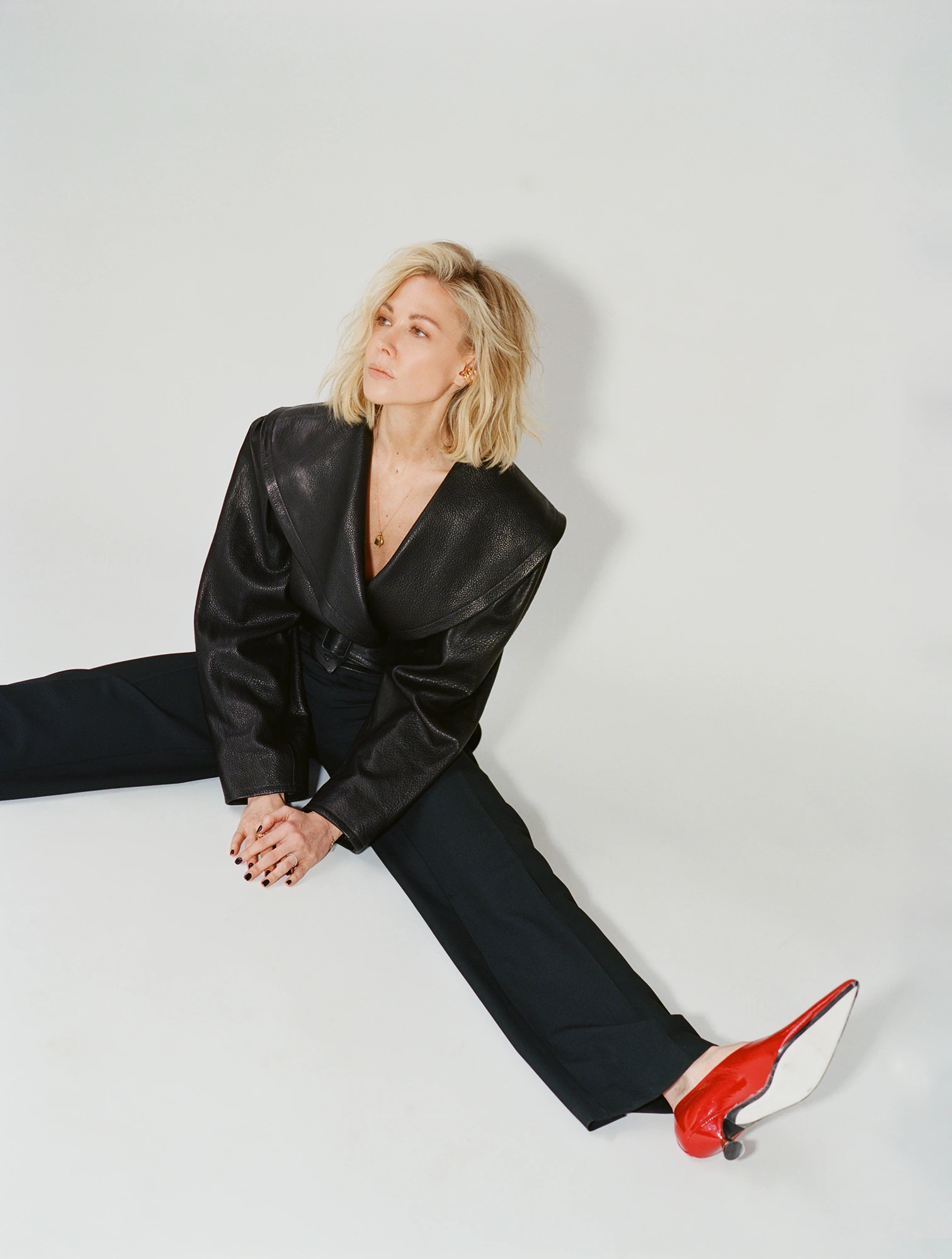
In your opinion, how much of good media is good writing?
I think good media consists of many things, but good media can mean something different to everybody. To one person, good media could mean just reinforcing their own beliefs. To someone else it could mean shining a spotlight on an important issue in a new way. Everyone appreciates a good story, good writing, that’s how you engage with your audience. I appreciate the media platforms that don’t just engage in good writing but good fact checking.
For our show, being a comedy show- good writing is absolutely essential. I don’t think I’m even being biased when I say I believe we have the best writers in late night.
Obviously, poking fun at such serious issues can be controversial. Where do you stop before going too far?
That’s a great question. As a show we’re always asking ourselves that. Sometimes I’m asking the room and its by committee, and sometimes my own personal alarms go off and I decide this isn’t something I want to make jokes about. And that’s ok. At this point we have a built in trust with our audience that they’ve given us the grace to have meaningful discussions about tragic events without having to make a joke.
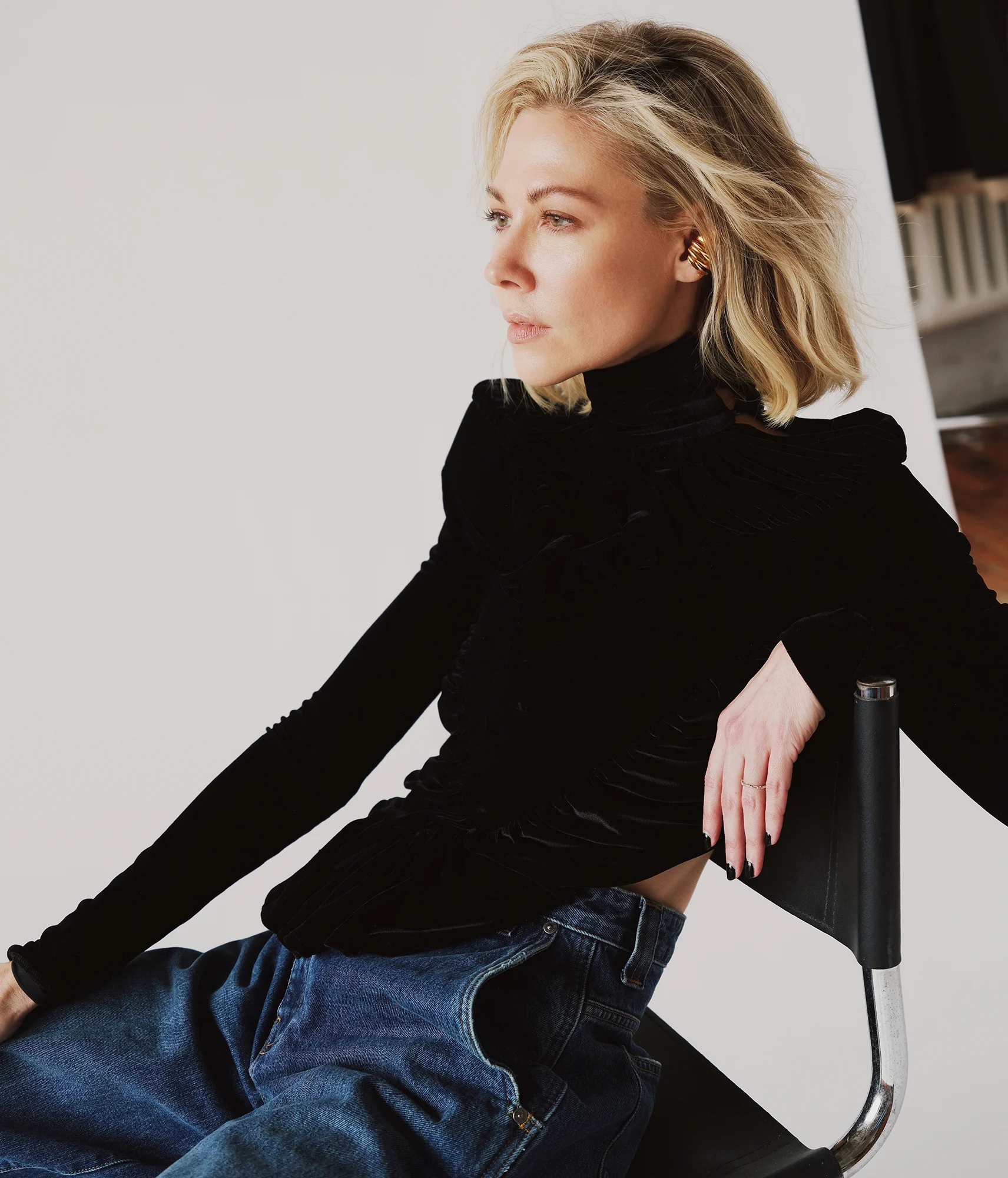
Are you afraid of the controversy? Or do you embrace it?
As a comedian, I’m not afraid of the controversy. Being brave and taking big swings is part of the art form. But as a human being, I never want to hurt anyone. So it’s a matter of just checking in with myself and the trusted brilliant minds around me.
How do you define humor? What’s funny and what’s not?
Why try?! I think the more you try to define it the less funny it gets. Humor is subjective and that’s what’s so beautiful about it!
Do you think that to be funny you have to be smart? Does good humor inherently have a degree of intelligence?
That’s interesting. I suppose there are people who are unintentionally hilarious, like say… a previous president of ours…who I wouldn’t describe as being particularly smart but truly hilarious (at times). The comedy I most appreciate is a cocktail of someone being extremely observant, an element of the unexpected, and a feeling of authenticity. But truth be told I’m also a sucker for a good fart joke.
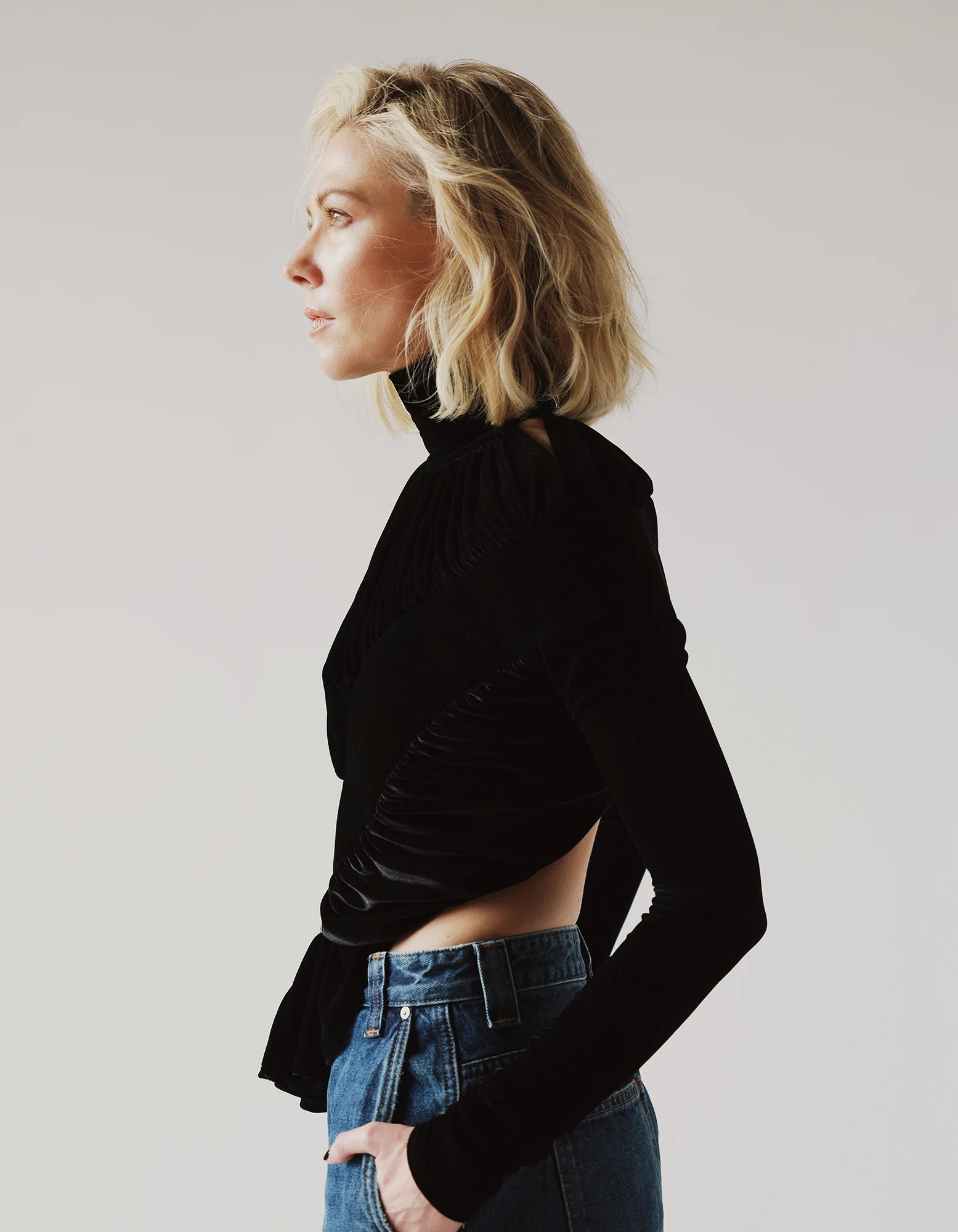
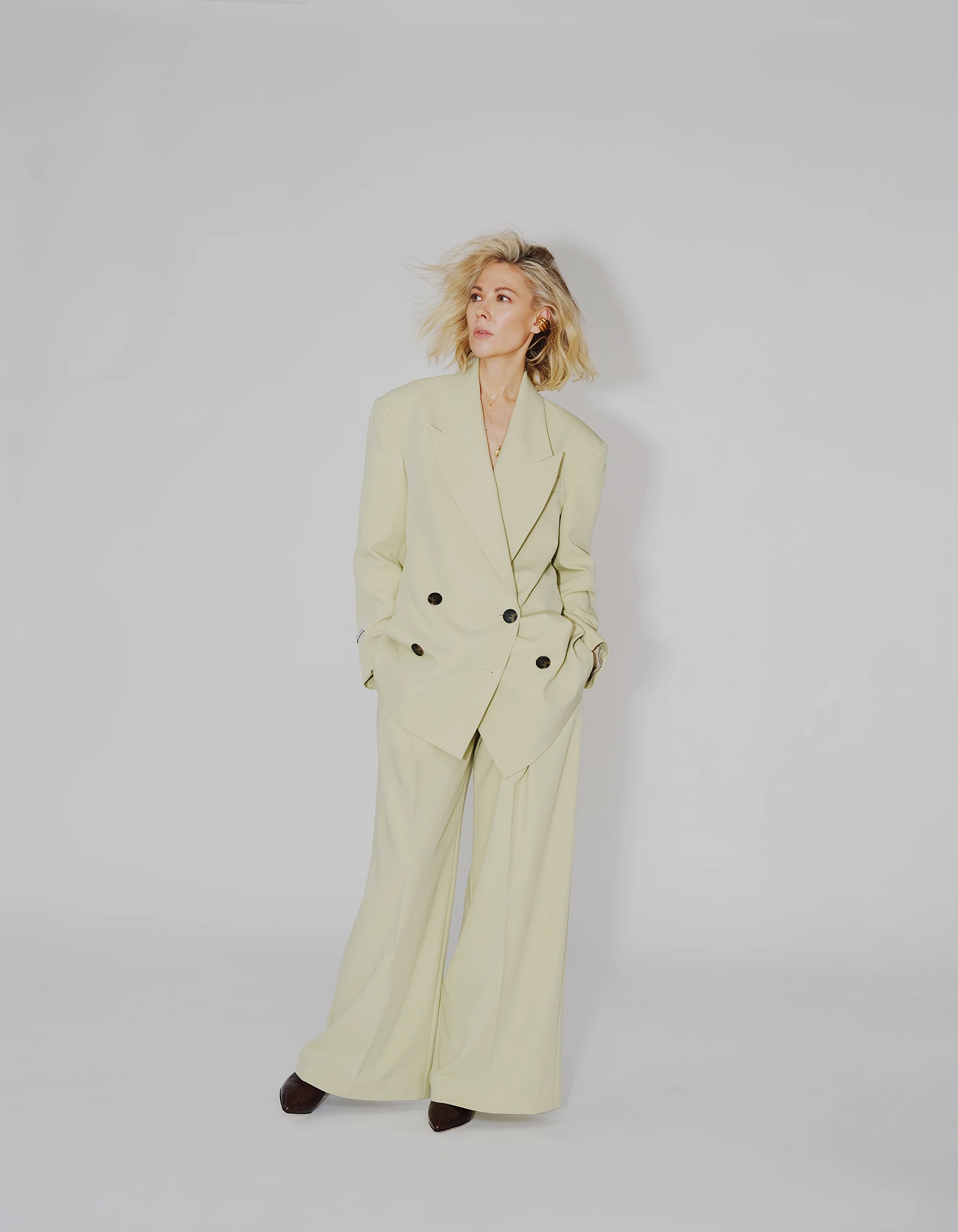
How do you think humor helps people relate to the world around them?
At its best, it can allow for the guard to come down and act as a way in. A way to see something through a different lens.
What’s one issue that people should talk about more?
There are a lot of important issues we should talk about more, Climate Change, gun reform, reproductive rights…How much time have you got?! I really wish we could settle on which Jean rise we’re committing to now. Are we still going ultra high?? Or is it more of a low-slung grunge vibe now?
Photography Laerke Rose Mollegaard
Creative Director Deborah Ferguson
Interview Laasya Gadiyaram
Stylist Rika Watanabe
Makeup Mika Shimoda
Hair Kazuto Shimomura
Web Layout
Naveed Shakoor
Thank you
Independent PR & Paramount
Like this project
Posted Jan 16, 2024
Desi Lydic Correspondent of the DAILY SHOW Photography Laerke Rose Mollegaard Fashion Rika Watanabe Creative Director Deborah Ferguson Interview Laasya Gadiyar…
Likes
0
Views
16


